
William Henry Diers (born Ulysses, Nebraska, May 27, 1890; died Lincoln, Nebraska, May 2, 1982) was an American Democratic party politician, businessman, and public servant. He served as Speaker of the unicameral Nebraska legislature in 1939.

William Henry Diers (born Ulysses, Nebraska, May 27, 1890; died Lincoln, Nebraska, May 2, 1982) was an American Democratic party politician, businessman, and public servant. He served as Speaker of the unicameral Nebraska legislature in 1939.
Diers was the son of Martha (Barnes) Diers (1862-1931) and Herman Diers (1860-1926), a banker and general store owner from Gresham, Nebraska. Herman served in the Nebraska House of Representatives 1901-3 and the Nebraska Senate 1909-1911. William's younger brother Herbert Kenneth Diers (1896-1975) served five terms in the unicameral Nebraska Legislature (1950-1956, 1958-1962). William graduated from York High School in York, Nebraska and attended the University of Nebraska 1909-1911. He and his brother continued to operate the family store following their father's death in 1926. [1]
A Democrat, William was elected to the Nebraska House in 1933 and 1935. The Nebraska legislature became unicameral with the 1936 elections, and he was elected in 1936 and 1938. In the 1939 session he was elected Speaker.
In 1940 Diers ran for Lieutenant Governor of Nebraska. He won a narrowly divided five-way Democratic party primary with 23.85% of the vote but was defeated in the general election by Republican William E. Johnson. He then went to work as a lobbyist. [2]
In 1947 Diers was appointed by Republican governor Val Peterson to the State Board of Control which operated the state's prisons and mental hospitals. The three members of the board had just resigned due to a scandal, and Peterson selected Diers over the candidate proposed by the Democratic state committee, Frank Sorrell, his opponent in the 1946 gubernatorial election. Diers was elected vice chairman and later chairman. He served on the board until 1955. [3] [4]
Diers was a candidate for lieutenant governor again in 1964 and received 4.36% of the vote in a crowded Democratic primary. [5]
Diers married Marjorie Berryhill (1893-1990) on November 29, 1916; they had two children. Diers and his wife are buried in Cedar Lawn Cemetery in Gresham.
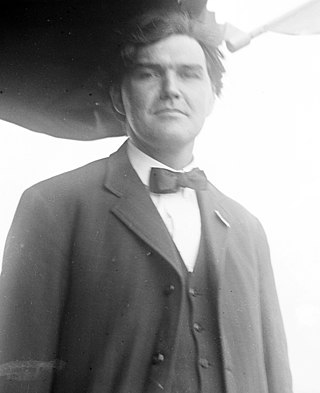
George Lawson Sheldon was an American politician and 14th governor of Nebraska with service from 1907 until 1909. He was the first native of his state to become its governor. He was a Republican from the progressive wing of that party, which was identified nationally with Theodore Roosevelt of New York.

The Vermont House of Representatives is the lower house of the Vermont General Assembly, the state legislature of the U.S. state of Vermont. The House comprises 150 members, with each member representing around 4,100 citizens. Representatives are elected to a two-year term without term limits.

The Nebraska Democratic Party (NDP) is the affiliate of the Democratic Party in the state of Nebraska. Over 700 Democrats are elected across the state of Nebraska. Jane Kleeb is the chair of the Nebraska Democratic Party and also serves as the Midwest Chair of the Association of State Democratic Committees.
The following table indicates the party of elected officials in the U.S. state of Louisiana:
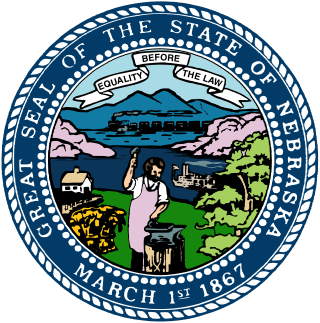
The 1998 Nebraska gubernatorial election was held on November 3, 1998. Term limits prevented incumbent Governor Ben Nelson, a Democrat, from seeking a third term in office. Republican nominee Mike Johanns, Mayor of Lincoln, defeated Democratic nominee, attorney Bill Hoppner. As of 2024, this was the last gubernatorial election in Nebraska in which the margin of victory was within single digits. Johanns later served Nebraska in the United States Senate with Nelson from 2009 to 2013.
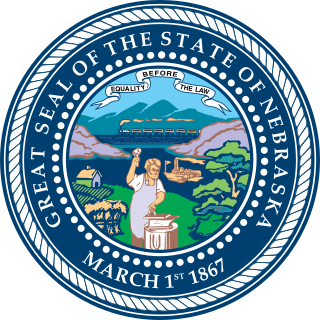
The Nebraska Legislature is the legislature of the U.S. state of Nebraska. The Legislature meets at the Nebraska State Capitol in Lincoln. With 49 members, known as "senators", the Nebraska Legislature is the smallest U.S. state legislature. A total of 25 members is required for a majority; however, in order to overcome a filibuster, a two-thirds vote of all members is required, which takes 33 votes.
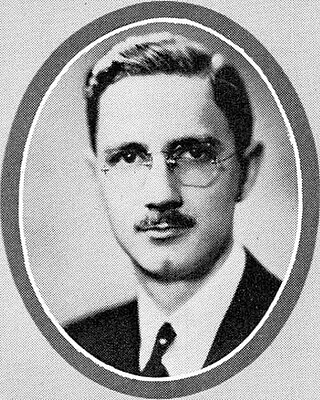
William Edward Johnson served as the 22nd lieutenant governor of Nebraska, from 1939 to 1943. He was a Republican who initially served under Democratic governor Robert Leroy Cochran and later under governor Dwight Griswold, who was also a Republican. He was born in and died in Omaha.

A general election was held in the U.S. state of Nebraska on November 6, 2018. All of Nebraska's executive officers were up for election as well as a United States Senate seat, and all of Nebraska's three seats in the United States House of Representatives.

The 1954 Nebraska gubernatorial election was held on November 2, 1954, and featured Mayor of Lincoln Victor E. Anderson, a Republican, defeating Democratic nominee, attorney William Ritchie.

The 1952 Nebraska gubernatorial election was held on November 4, 1952, and featured former Lieutenant Governor Robert B. Crosby, a Republican, defeating Democratic nominee, former state Senator Walter R. Raecke.

The 1950 Nebraska gubernatorial election was held on November 7, 1950, and featured incumbent Governor Val Peterson, a Republican, defeating Democratic nominee, former state Senator Walter R. Raecke, to win a third and final two-year term in office.

The 1948 Nebraska gubernatorial election was held on November 2, 1948, and featured incumbent Governor Val Peterson, a Republican, defeating Democratic nominee, former state Senator Frank Sorrell, to win a second two-year term in office.

The 1946 Nebraska gubernatorial election was held on November 5, 1946, and featured former school superintendent and newspaper publisher Val Peterson, a Republican, defeating Democratic nominee, state Senator Frank Sorrell.

The 2018 Nebraska State Legislature elections took place as part of the biennial United States elections. Nebraska voters elected state senators in the 24 even-numbered seats of the 49 legislative districts in the Nebraska Unicameral. Nebraska is unique among American| states in that there is only one chamber in its state legislature, and this chamber is called the Unicameral and the State Legislature interchangeably. State senators serve four-year terms in the Nebraska Unicameral.

The 2020 Nebraska State Legislature elections took place as part of the biennial United States elections. Nebraska voters elected state senators in the 25 odd-numbered seats of the 49 legislative districts in the Nebraska Unicameral. State senators serve four-year terms in the unicameral Nebraska Legislature.
The Government of the U.S. State of Nebraska, established by the Nebraska Constitution, is a republican democracy modeled after the Federal Government of the United States. The state government has three branches: the executive, the legislative, and the judicial. Through a system of separation of powers, or "checks and balances," each of these branches has some authority to act on its own, and also some authority to regulate the other two branches, so that all three branches can limit and balance the others' authority. The State Government is based in Lincoln, the capital city of Nebraska.

The 1948 Nebraska lieutenant gubernatorial election was held on November 2, 1948, and featured former Speaker of the Nebraska Legislature Charles J. Warner, a Republican, defeating Democratic nominee Sam J. Howell.

The 1946 Nebraska lieutenant gubernatorial election was held on November 5, 1946. Incumbent Nebraska Lieutenant Governor Roy W. Johnson lost to Robert B. Crosby in the Republican primaries after the Nebraska Republican Pre-Primary Convention refused to endorse him for reelection. Thus, the general election featured Robert B. Crosby as the Republican nominee who defeated Democratic nominee Robert J. Swanson.

The 1940 Nebraska lieutenant gubernatorial election was held on November 5, 1940, and featured incumbent Nebraska Lieutenant Governor William E. Johnson, a Republican, defeating Democratic nominee and Speaker of the Nebraska Legislature William H. Diers.
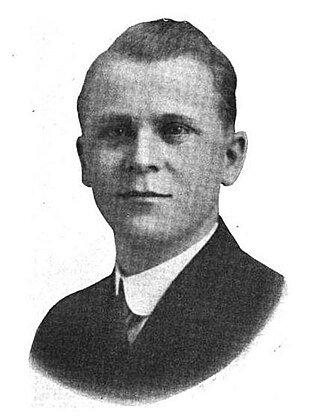
The 1912 Nebraska lieutenant gubernatorial election was held on November 5, 1912, and featured Republican nominee Samuel Roy McKelvie defeating Democratic nominee Herman Diers as well as Socialist Party nominee W. T. Jeffryes and Prohibition Party nominee Theodore J. Shrode.